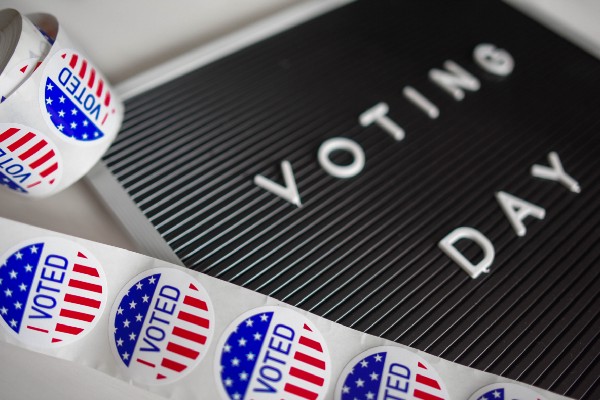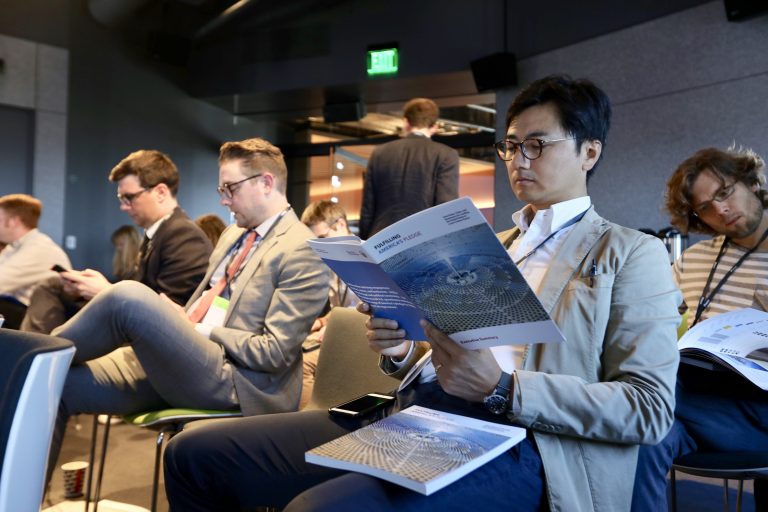The Center for Climate and Energy Solutions (C2ES) and The Climate Registry (TCR) are pleased to announce that Bloomberg Philanthropies will serve as headline sponsor of the 2019 Climate Leadership Conference, which is taking place March 20-22 in Baltimore. The eighth annual conference, co-hosted by C2ES and TCR, is the preeminent U.S. climate leadership event bringing together more than 400 climate professionals from the public and private sectors.
Cities across the U.S. are leading the way when it comes to renewable energy procurement, and for good reason. Not only are renewable energy technologies cost competitive with traditional fossil fuel sources, but they also boast significant environmental and health benefits for local communities. And while the thought of renewables may conjure images of places like sunny California or windy Texas, two of the nation’s leading cities call the Buckeye State home. That’s no surprise when you consider a recent poll that found that 70% of conservatives in Ohio want a majority of their energy to come from renewable sources. Cincinnati and Columbus are working to make that dream a reality.
This past month the United States sold its one-millionth electric car (more than 4 million have been sold globally). The event marks a significant milestone and demonstrates that mobility in the U.S. is on the threshold of a major technological transition to an electric mobility future. This monumental transportation transition is coupled with unprecedented levels of subnational engagement on climate change. Leadership on climate change and clean transportation is increasingly coming from states and cities who have come forward to uphold the Paris Climate Accord in the face of federal resistance.
Cities in the United States are uniquely positioned to spur growth in demand for renewable energy procurement, accelerate the transition to a clean energy system, and provide visible and practical examples for the country as whole. By demonstrating to states, regions, and the federal government that it is possible to take practical, actionable steps to decarbonize electricity use, city leaders have the potential to inspire impact far beyond their limited jurisdictions. (Case in point: the Washington, D.C., City Council just unanimously voted “yes” to require 100 percent of the district’s electricity to come from renewable sources by 2032—against a background of political gridlock at the federal level.)
In the United States, as in every country around the world, opportunities for climate leadership exist at every level of governance. So despite what the
headlines may say about current inaction on climate change at the federal level, businesses, cities, and states are laying the groundwork for America’s low carbon future. The thousands of day-to-day investment decisions made by businesses, local solutions implemented by mayors and city councils, and win-win energy and environmental policies set by state governors and legislatures are adding up.

Last week, the U.S. midterm election flipped the House of Representatives, six state legislative chambers, seven governorships, and a myriad of other seats across the country, thus sweeping in a cohort of new leaders at state, city, and local levels who have committed to ambitious climate action. This wave of new leaders adds to the already large list of city, state, and other elected leaders who have incorporated climate change into their platform: acknowledging scientific consensus, pledging to uphold the Paris Agreement, and investing in clean energy.
At the Global Climate Action Summit, the America’s Pledge initiative – co-chaired by UN Special Envoy for Climate Action Michael R. Bloomberg and California Governor Edmund G. Brown – announced a new partnership with the Japan Climate Initiative, a new collaboration between over 200 Japanese firms, local governments and civil society organizations dedicated to accelerating climate progress in Japan.
America’s Pledge will report this collective progress to the Global Climate Action Summit that starts Wednesday in San Francisco. The effort, by our calculations, will put the country within striking distance of the 26% reduction in greenhouse gases, by 2025, that the United States promised to hit in Paris. The report outlines 10 areas where U.S. cities, towns and organizations can focus their attention to cut emissions even more quickly, even without support from the federal government. Our message to the world is simple: The United States is taking bold steps to uphold our end of the deal. And we have market forces and public opinion on our side.

At the Global Climate Action Summit — where over 4,000 business, city, state and civil society delegates are plotting more ambitious commitments to achieve the goals set by the Paris Agreement — Summit co-chairs Governor Edmund G. Brown, Jr. and UN Secretary-General’s Special Envoy for Climate Action Michael R. Bloomberg unveiled a report demonstrating how cities, states, and businesses can bring the U.S. within striking distance of its 2025 emissions reduction target in the absence of federal leadership.
Today, the America’s Pledge initiative released its “Opportunity Agenda,” a road map for bottom-up action by businesses, cities and states across ten sectors within which collaborative strategies can significantly reduce U.S. carbon emissions in the near term, in the absence of federal government policy.


